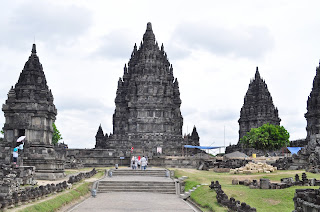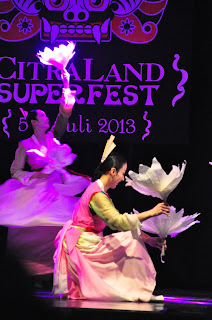The idea of religion has always fascinated me. I’ve gone
through various phases of “spirituality”, even though I’d say most of my
younger phases ones involve thinking, just reactions to the then-tiny world
around me. In the past couple of years I have thought long and hard about this
divisive, unifying, terrifying and comforting idea that humans have created.
Most importantly in this philosophizing process is the
realization that my beliefs and convictions have, and always will, evolve with
new interactions, events and discoveries. As a result, I have concluded that
becoming set in anything more than the most basic ideals inhibits personal
growth, discovery and even happiness. This has mostly blocked out the
possibility of me wanting to join any organized religion, specifically because of
organization. And yet, these ideals share the very core of major world
religions, so I still feel a strong connection to them.
For some time, this outlook made me think that I had to find a religion; some specific,
shared outlook on the universe. I had convinced myself that I was lost, needing
to attach myself to a system instead of floating around. Christianity and
Judaism made up the vast majority of where I grew up, and neither connected
with me at all. I had accepted Christianity as a de facto spiritual guide for
some time simply because that’s what I grew up with, but knew it didn’t work
with me and largely abandoned it towards the end of high school.
Lately, however, I have found joy in the freedom of floating
around in my own path rather than finding one to stick to. This allows my
ideals to evolve as necessary to account for new information and experiences
around which I can adapt my beliefs rather than see things only as they fit a
certain doctrine, which severely distorts reality and how to respond to life.
This is where I have found freedom and serenity, creating a faith based on the
challenges of the world.
An important detail of this is that it did not make me
reject organized religion as a valid spiritual path for others. Rather, I have
become more fascinated by all belief systems and how they compare, but mostly
how they do provide so much for so many people. Despite plenty of experiences
with those who practice as a result of indoctrination (which is not real faith
to me) or just because they feel they have to, I have seen countless more who
find true spiritual satisfaction in religion, really loving what they practice
and believing it with their souls. This is a powerful uniting factor among
belief systems, showing that at the core, following any of them is supposed to
promote harmony and community among all creeds. The specific rules are up for
interpretation (which is where people twist it the wrong way) but being a good
human being is the purpose, and when people achieve this, they find that sense
of peace that they can spread to others.
Now that I have lived in a very predominantly Muslim
community for a month, though a far cry from understanding it, I’ve gotten a
better sense of, and have even shared in, the spiritual satisfaction of an
organized religion. The most profound sensations have been in relatively common
practices rather than major events.
First comes with the ubiquitous call to prayer, five times a
day. Our home stay in Surabaya is in close proximity to at least five mosques,
so we hear a wide variety in song quality, which occurs five times a day (plus
some bonuses during Ramadan). There are two singers, however, in whose voices
one can hear true meditation and contentment. They work around the din of the
atrocious singers from the other mosques, and after dinner their prayers float
into the home stay on the breeze that kicks up with sunset, and the peace
spreads to everyone who listens. Some of us have sat on the tiny balcony many
times, taking in the sound, feeling its warmth and even its soul.
One evening, I listened to a particularly well-performed
call to prayer with Mas Risa, the husband half of our cooks. The setting was
perfect: a gentle breeze kept the mosquitoes and burning garbage smell away,
and everything else was quiet. Somehow the usual din of city life was muted and
the truly meditative state of the singer reached us clearly on the balcony,
uninterrupted. Risa leaned on the railing with his eyes closed and half-smoked
cigarette forgotten between his fingers. Already a generally relaxed guy, any
remaining tension visibly evaporated, leaving a face and energy of pure
serenity. When this mosque finished, and before the discordant cacophony of
other mosques erupted, breaking this perfect calm, Risa turned to me, saying
that hearing these prayers brought him a peace and happiness that he couldn’t
really explain even in Indonesian. I believed it; I saw it, and even felt it
myself.
Ramadan has played a big part in this, too. As I explained a
couple posts ago, the purpose of this fasting month is a kind of spiritual
cleanse, reminding followers to appreciate what they have and to practice
self-control. I’ve so far survived two weeks (mostly) not eating or drinking
anything between sunrise and sunset. Admittedly I have cheated twice and had a
slice of peanut butter bread in the morning when I slept through sahur, the early morning last-chance
meal (3:30 in the morning) before Indonesian Muslims must begin their fast for
the day (4:00am; the time depends on sunrise, so people in the northern
hemisphere have a longer fast).
Despite being tired and foggy during the day as I struggle to
distract myself from hunger, I feel much more optimistic at night after eating
three meals’ worth of food in an hour. Every night I convince myself that I can
make it one more day, which will hopefully be a successful strategy in making
it almost one month (not a full month because I’ll be in Bali for the final
days, where I definitely won’t fast). Apart from my even greater appreciation
for food (which I already really
appreciated thanks to my wonderful mother) I feel like the fasting has
influenced my attitude in some way. It’s not clear how, since during the day
I’m still fairly hangry
(hunger-cranky; not an Indonesian word). At night, though, things just seem… better. A large number of factors might
influence this, but since it’s happening during the fasting, I won’t rule out
the possibility.
This has helped me connect pretty deeply with everybody else
who is fasting, partly by sharing in the misery, but also because of my joining
in such a significant part of their lives. Every morning my conversations start
like this:
“You’re fasting today?”
“Yeah…”
“Bagus! (bah-goose;
Good!)”
Taking part in traditions, especially spiritually
significant ones, creates a bonding and learning experience that one cannot
find from simply talking about it, just like the difference between reading
about and traveling to a foreign land.
Because I have joined in on one tradition, it has opened the
door to becoming part of a more intimately spiritual aspect of Ramadan: this
past Friday (Muslim holy day, like Christians’ Sunday), the dance team and
director invited me to stay after practice for buka puasa, or iftar in
Arabic, which means breaking the fast. With this, they also invited me to join
in their pre-dinner prayer, which surprised me considering I’m not Muslim.
The notion made me incredibly nervous, because I really
didn’t want to mess up and accidentally insult them with some clumsy faux-pas.
They would not have been insulted if I had passed, but genuinely wanted me to
experience as much as possible and to understand part of the spirit behind
their beliefs. I decided to go for it, keeping alert for every minute hand and
body movement from the guys on either side of me. It turns out that it’s not
very complicated, and I didn’t mess up, except regarding how I sat on my feet.
Trying to teach me, thankfully, became a laughing matter rather than something
serious.
I immediately made a connection between the prayers and
meditation. There are very rhythmic chants and periods of reflective silence.
One of the drivers turned to me afterwards and said that these prayers (which
Muslims must perform five times a day) are kind of like yoga, which makes
perfect sense; yoga, meditation and prayer share very similar goals of inner
peace. Indeed, after we finished I felt the same peaceful and refreshing
sensation that I occurred at various temples of myriad philosophies throughout
Japan where I tried their prayers, as well as from my own occasional attempts
at meditation.
Sharing this with my hosts made me feel closer to them and
helped me spiritually. I have a better sense of certain aspects of organized
religion, and also have managed to make even more connections across the
spectrum of beliefs, bringing everything even closer together than before.
Coincidentally enough, this all culminated later in the night when I watched
“Life of Pi” which is a movie about a journey of faith. Its use of lofty movie
dialogue gave me an articulation of this sensation that all of these faiths are
interrelated, as well as the value of exploring all of them as deeply as
possible.
Engaging directly with Islam here has helped me a lot. It
has reinforced my decision not to join an organized religion, but has
deepened my appreciation for those who do find spiritual enlightenment through
this path. I also feel more at peace with myself by making these deep
connections with the Indonesians and among different belief systems.
While I can’t quite articulate how, I feel I have grown spiritually, and feel
more at peace.
Indonesia continues to surprise me with what I've actually ended up learning..








































































